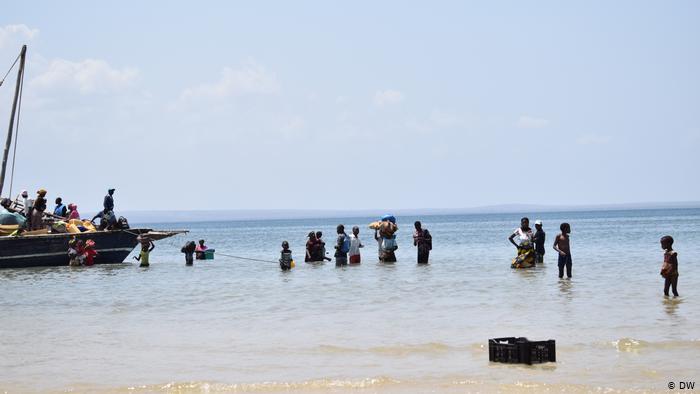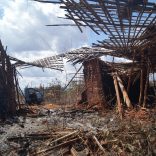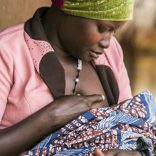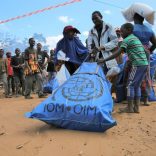Mozambique: Security situation in north 'continues to deteriorate' - UNHCR
Mozambique: Full boats flee Palma, not all reach safety of Pemba

Paquitequete. [Image: DW]
Boats full of people fleeing Palma, northern Mozambique, are arriving in Pemba, the provincial capital of Cabo Delgado, on a sea journey that not everyone survives, according to witnesses.
“Easy it is not, because also the travel is also risky,” Mustafa Amade told journalists on arrival at the beach in Paquitequete neighbourhood on Tuesday, along with dozens of displaced people from Palma who ventured out in a wooden sailing boat.
“On Thursday we made it, and on Friday we arrived in Matemo,” an island in the Quirimbas archipelago off Cabo Delgado, one of the points on the tough route on the open sea, in wind-driven, wooden boats without conditions, to Pemba.
“Some boats behind [ours] were caught by evildoers” Amade said, noting that the information they received on the island [Matemo] indicated that four transport boats and six fishermen’s boats had been boarded.
“On the islands, you run risks. In one week’s time, you might not even make it” to Pemba, he said, reporting that the group came across dead bodies in Matemo on Friday: “On the spot, what did I see? Four dead people.
Issa Ali, another displaced person, recounts the difficulties: “We travelled with a lot of suffering. Bad weather, hunger, with children, vomiting in the sea”, all together in a scenario where fear reigns.
The journey is not within everyone’s reach because, to get on the boat, people are charged “starting at five, four [thousand meticais]” to reach the islands, such as Matemo.
From there, you have to pay another 300 to 600 meticais to reach Pemba.
Mansabo Rachide, another displaced, gives an account of attacks on fleeing boats, with other details: he speaks of 10 “al-shababs”, in an allusion to the rebels, with weapons and who “took many things: fish, food and two motor boats [lanchas] of people who were leaving Palma”.
“I don’t know where I am going. This trip, I didn’t plan it. I left out of emergency,” said Musatafa Amade
“The attacks continue,” he reports, saying that “after they [rebel groups] left” following the 24 March raid, “they are coming back” to the town of Palma, in an allusion to incidents, part of which confirmed last week by the Defence and Security Forces (FDS).
“Each day they can behead three to four people and burn houses,” described Amade, to justify why he decided to flee Palma.
Without reference to victims, the FDS confirmed last week that unknown persons, probably belonging to the group that carried out the attack on 24 March, had set fire to houses but claimed they controlled the area.
But the population fears for their lives.
“What we want is security and to go back home. It is complicated to start from scratch,” Musatafa Amade said.
“That’s what makes us leave for good,” added Issa Ali, who laments last week’s situation of strangers “burning houses, at the bottom of the town”.
“Every day that comes [the violence], and we can’t stay in that situation,” he concluded.
Authorities, humanitarian and government organisations are monitoring the arrival of boats with displaced people in Pemba, namely on Paquitequete beach.
Armed groups have been terrorising Cabo Delgado since 2017, with some attacks claimed by the ‘jihadist’ group Islamic State, in a wave of violence that has caused more than 2,500 deaths according to the ACLED conflict registration project and 714,000 displaced people according to the Mozambican government.
The attack on Palma caused dozens of deaths and injuries.
The Mozambican authorities regained control of the town. Still, the attack led oil company Total to abandon indefinitely the gas project site scheduled to start production in 2024. Many of Mozambique’s economic growth expectations for the next decade are anchored.












Leave a Reply
Be the First to Comment!
You must be logged in to post a comment.
You must be logged in to post a comment.